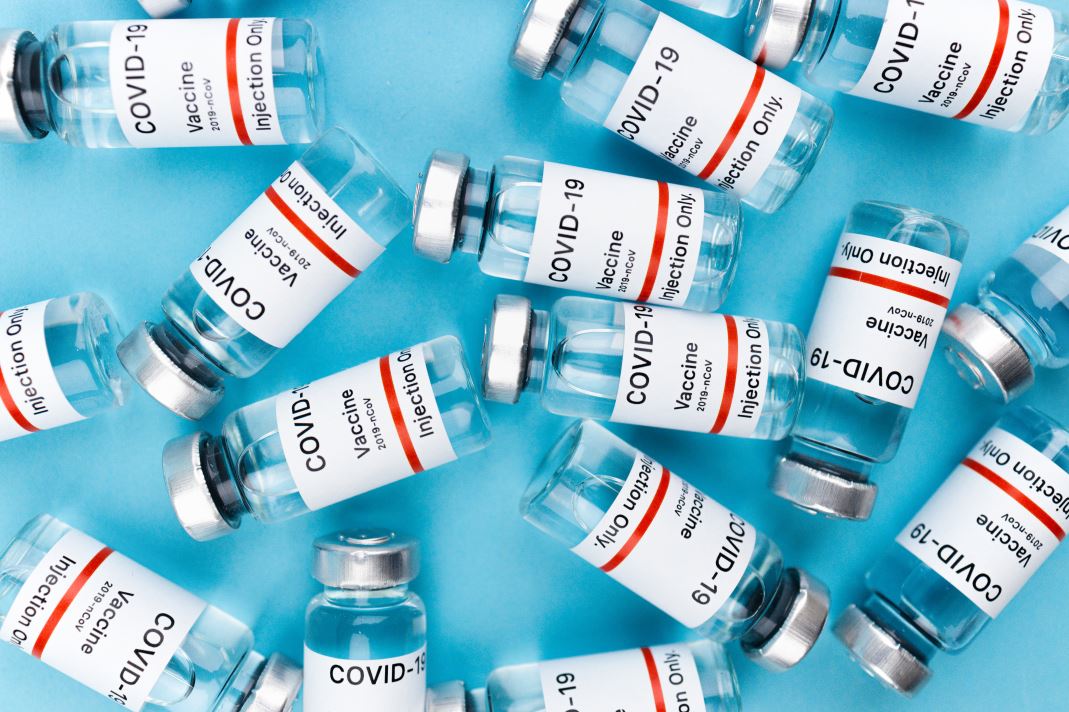How fragile is the distribution network for the UK's COVID-19 vaccination programme?

The news of potentially successful coronavirus vaccines has provided welcome light amid the gloom of continued lockdowns and restrictions. Announcements from Moderna, AstraZeneca and Pfizer/BioNTech of candidate vaccines with efficacy above 90% have seen stock markets soar and hopes grow that, by autumn 2021, the world might see a return to a more ‘normal’ existence.
There has been a colossal effort to develop vaccines, carry out the clinical testing at record pace and produce enough to immunise the entire UK population. With that in mind, Plimsoll has assessed the state of play in some of the support industries that will feed into the vaccination programme to reveal where there might be weaknesses:
Equipment & devices
There are already concerns about the availability of syringes and other administering kit to roll out the vaccine. Manufacturers and non-government medical organisations are warning of a shortage in the national stockpile of syringes and the need to order kit now rather than when vaccines are approved and ready to administer.
While the UK government has ordered millions of syringes from the US supply giant BD, worries of a shortfall and the need for wipes, PPE, vials, and other medical kit persist. To successfully execute the largest and most comprehensive vaccination programme in history, supplies needs to be in place. But is the industry set up to cope?
Plimsoll's latest assessments show the financial outlook for 2021 of the equipment and device industries which will be integral to the vaccine programme:
|
|
% of companies rated Danger |
Average Profit Margins |
| Medical Devices |
23% |
3.8% |
| PPE Suppliers |
16% |
3.2% |
| Wipes |
19% |
4.3% |
Staffing
With Brexit set to add additional pressures on science-based recruitment and a dearth of adequately qualified administrators, there could be a looming HR crisis in the vaccine roll out. The UK government is already flirting with the ideal of using non-medical staff to administer the jabs and the Army has been put on alert to help.
Finding the requisite number of staff will require an unprecedented effort from both the private and public sectors. Recruitment across the medical and scientific sector has long been a tale of low margins despite increased growth. Is the vaccine rollout set to bring a windfall into these niches of the recruitment sector or will they find there are just not enough staff to fill the roles?
Plimsoll's latest assessments show the financial outlook for 2021 of the recruitment industries which will be integral to the vaccine programme:
|
|
% of companies rated Danger |
Average Profit Margins |
| Locum Agencies |
24% |
1.2% |
| Health Recruitment |
22% |
1.6% |
| Scientific Recruitment |
23% |
1.9% |
Cold Storage & Transport
The Moderna and Pfizer vaccines have achieved more than 90% efficacy which is wonderful news. However, storage and transport of these vaccines requires storage at up to -70 degrees Celsius. The infrastructure for the storage and transportation of such a vaccine could come under extreme pressure. With a messy Brexit divorce still not discounted, these valuable vaccines could spoil while sat waiting for customs clearance in Dover and other entry points.
The AstraZeneca vaccine, while perhaps not as advanced along the accreditation process, does at least have the benefit of being storable at room temperature. Could the UK government put their faith in this vaccine and avoid the risk of spoilage? These decisions need to be made urgently if the storage and transportation of vaccines is to be handled correctly.
Plimsoll's latest assessments show the financial outlook for 2021 of the specialist storage and transport industries which will be integral to the vaccine programme:
|
|
% of companies rated Danger |
Average Profit Margins |
| Medical Logistics |
22% |
0.7% |
| Cold Storage |
28% |
2.9% |
| Temp Controlled Distribution |
24% |
2.7% |
| Air Freight |
19% |
1.5% |
Is the UK's distribution infrastructure ready to cope with the COVID-19 vaccination programme?
Clearly, there is strength within the equipment and devices market. The financial stability of most companies in those industries seems solid. However, capacity to fulfil demand much less so. Could the government be forced to look overseas for stock?
Staffing the vaccination programme could be problematic. Sourcing staff, especially after Brexit, could be difficult. After a tumultuous 2020, many agencies are in financial trouble. While soaring demand to place qualified vaccination staff might provide a temporary boost to those companies that made it through 2020, there is a danger that many could be teetering on a financial precipice. The last thing the government needs is to choose an agency and see it collapse. Diligence is imperative.
The dedicated Medical Logistics market is notoriously low margin as it battles with bureaucracy of servicing a politically controlled healthcare provider in the NHS. Other parts of the storage and distribution sector exist on much better margins serving a wider array of markets. Will they have the capacity to 'chip in' on the national vaccination programme?
The pandemic has affected the whole of the UK economy and a return to normality in 2021 would be welcomed by everyone. The roll out of vaccines will be the main part of a strategy to eliminate the COVID-19 virus and prevent it mutating and developing drug resistance. These three sectors are those that the programme will lean on most to get it right.
Plimsoll produces individual analyses on more than 1600 UK industries. Including a performance assessment, valuation, and acquisition rating on every major company in each market, we help business leaders make better informed decisions. For more information on the latest analysis on your own industry, please visit www.plimsoll.co.uk.


